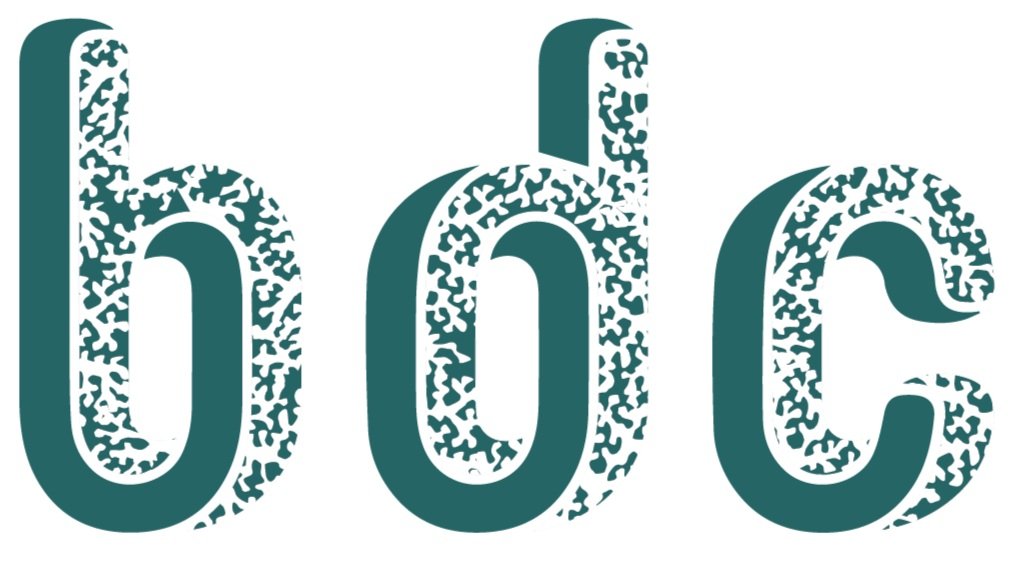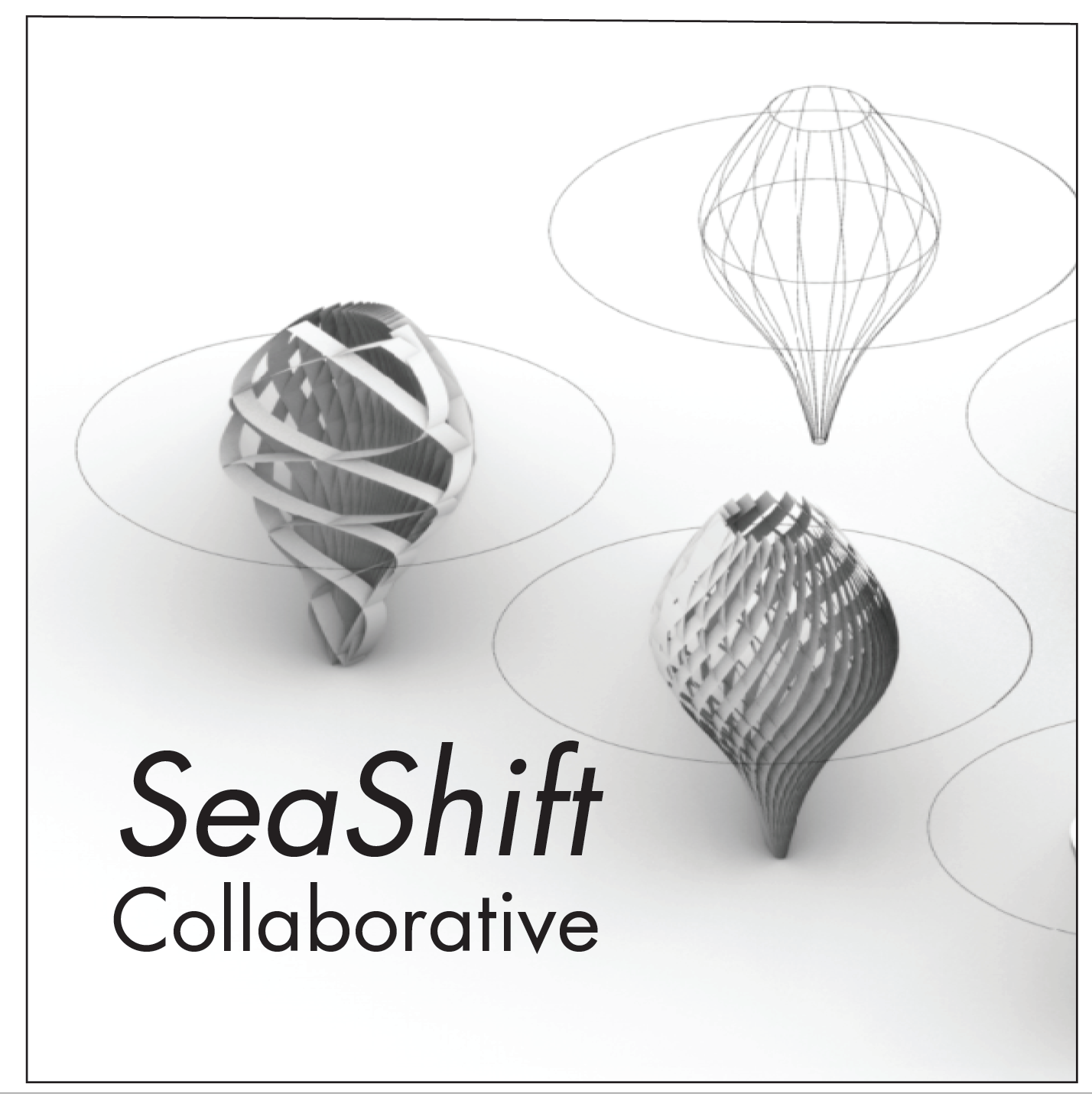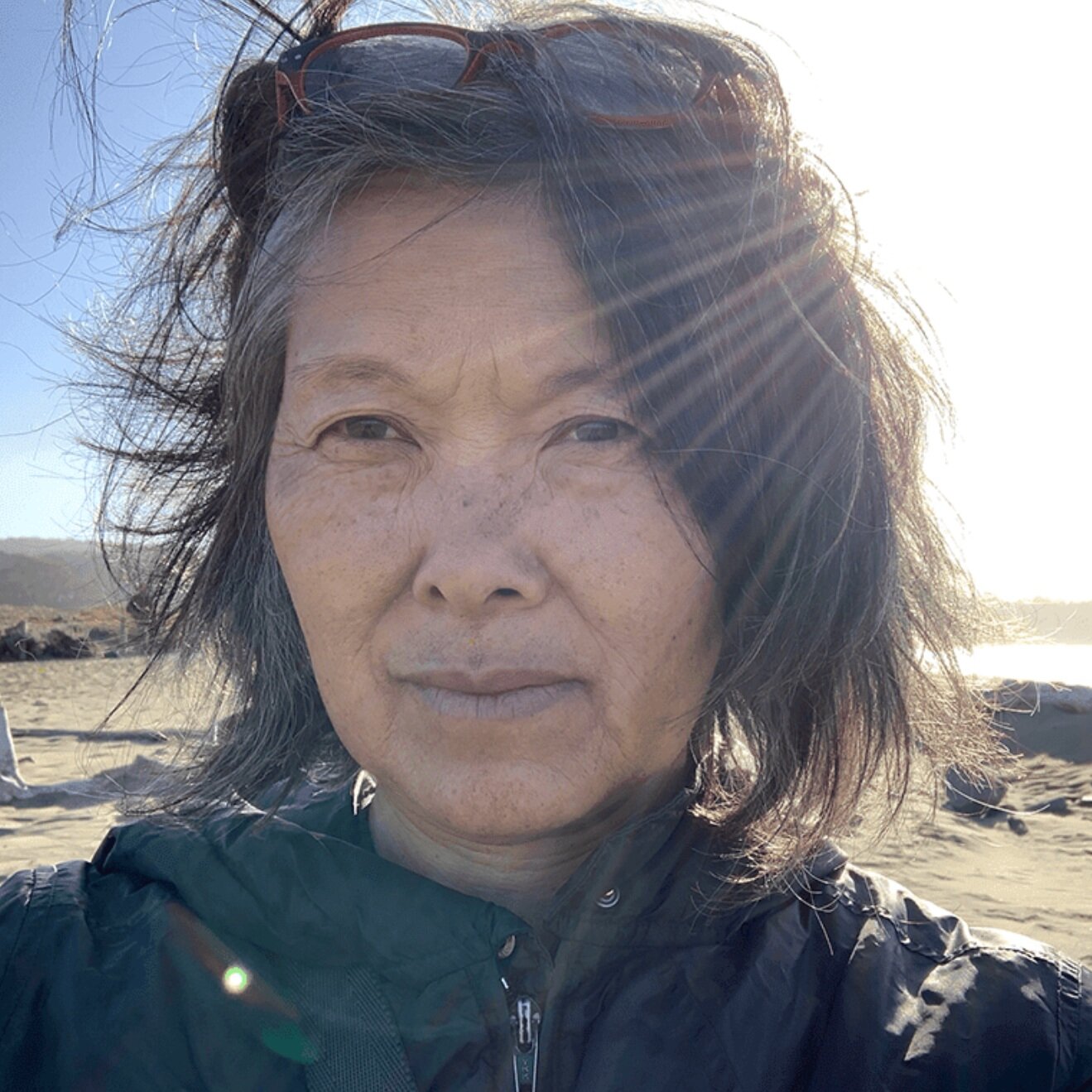SeaShift Collaborative
CALIFORNIA COLLEGE OF THE ARTS, UNIVERSITY OF CALIFORNIA AT DAVIS, AND UNIVERSITY OF CALIFORNIA AT SAN FRANCISCO
PROJECTS | 2020
Living Pod
Lili Mao, Keehyun Ryu, Yitian Ma, Elizabeth Marley, Athena Lin
The team designed blueprints for floating research stations where scientists who are seeking to remediate ocean plastics can collect information. The structure is made from PHA, a plastic that breaks down and can feed marine ecosystems.
Finalist Team
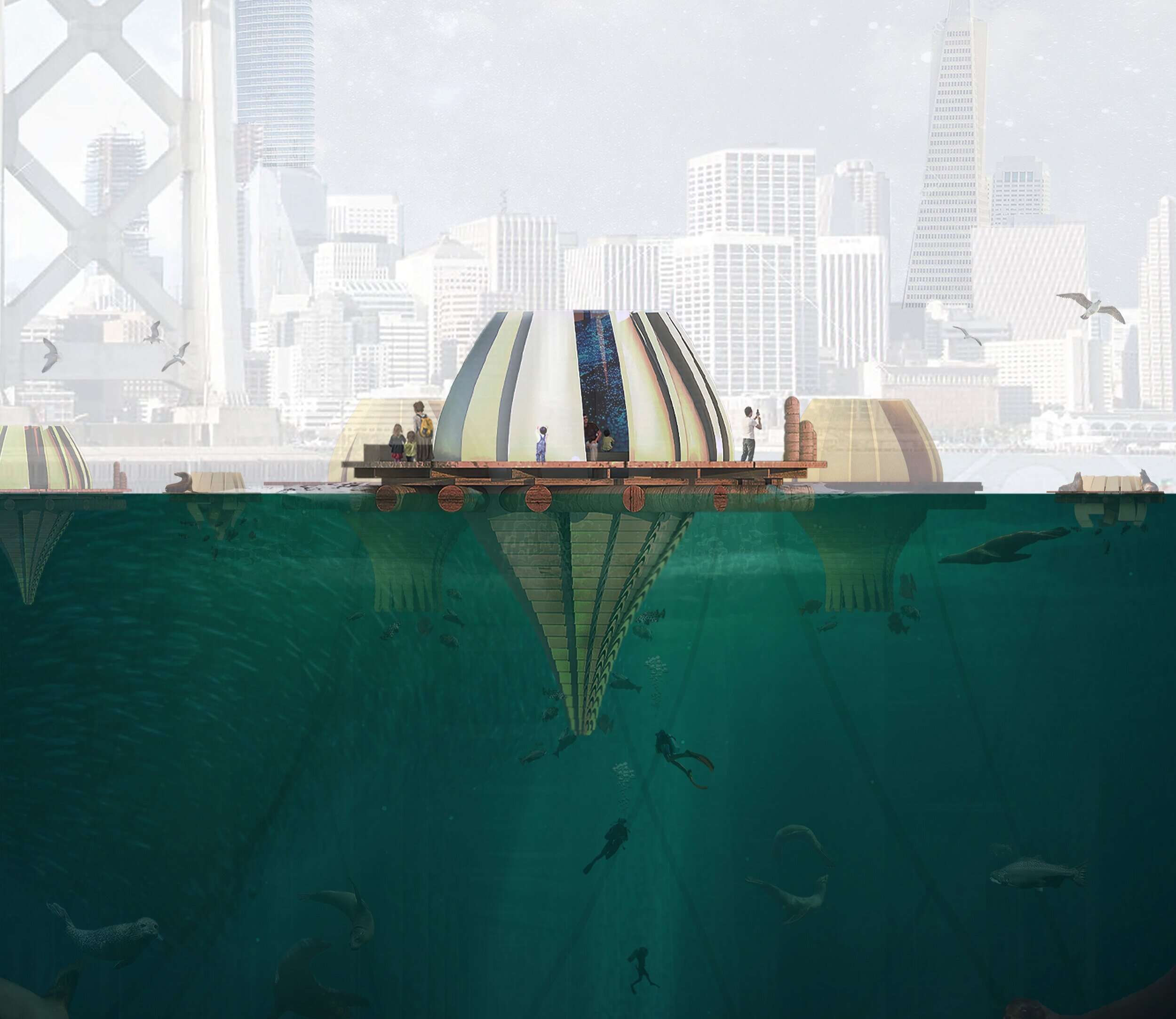
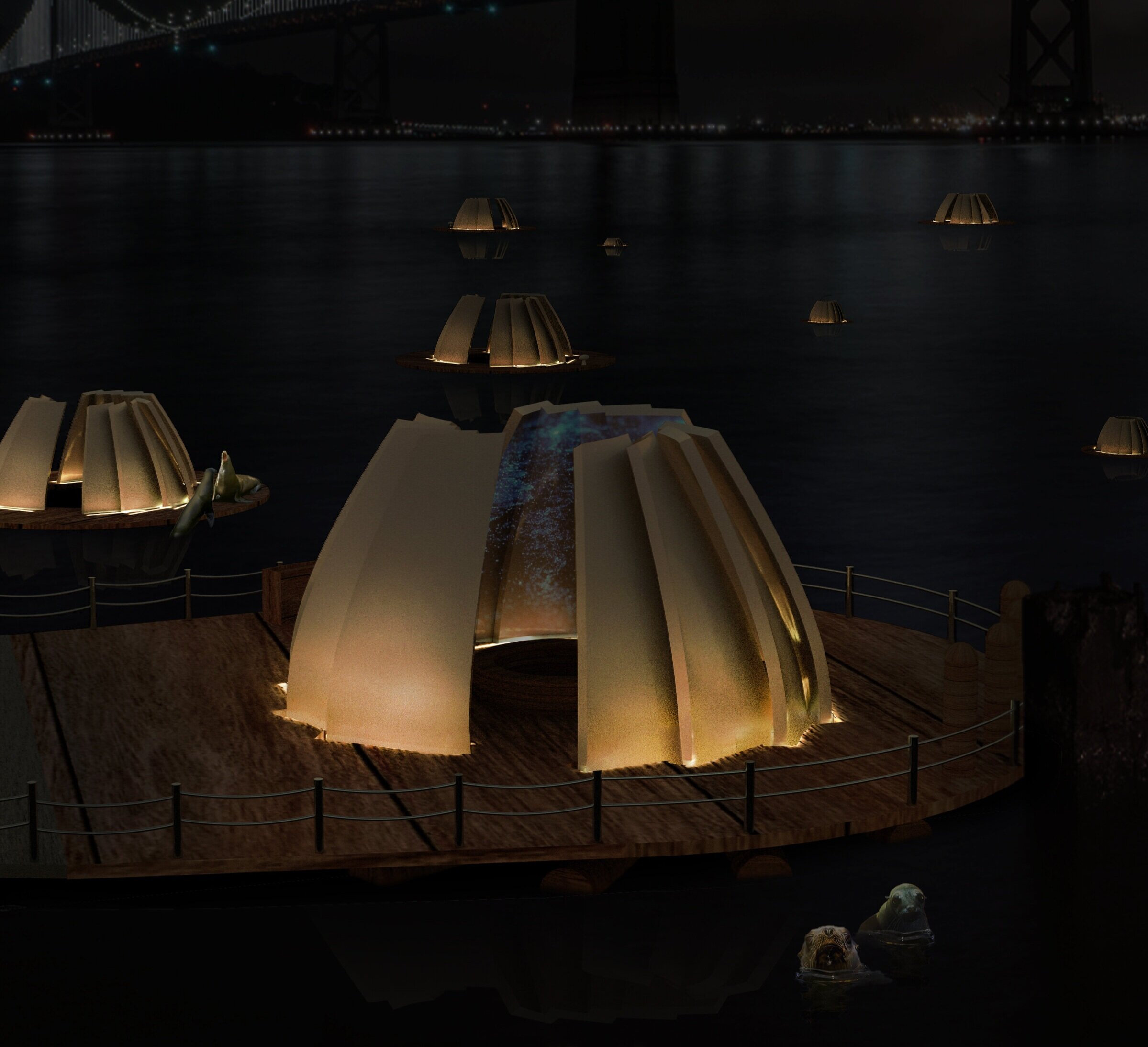
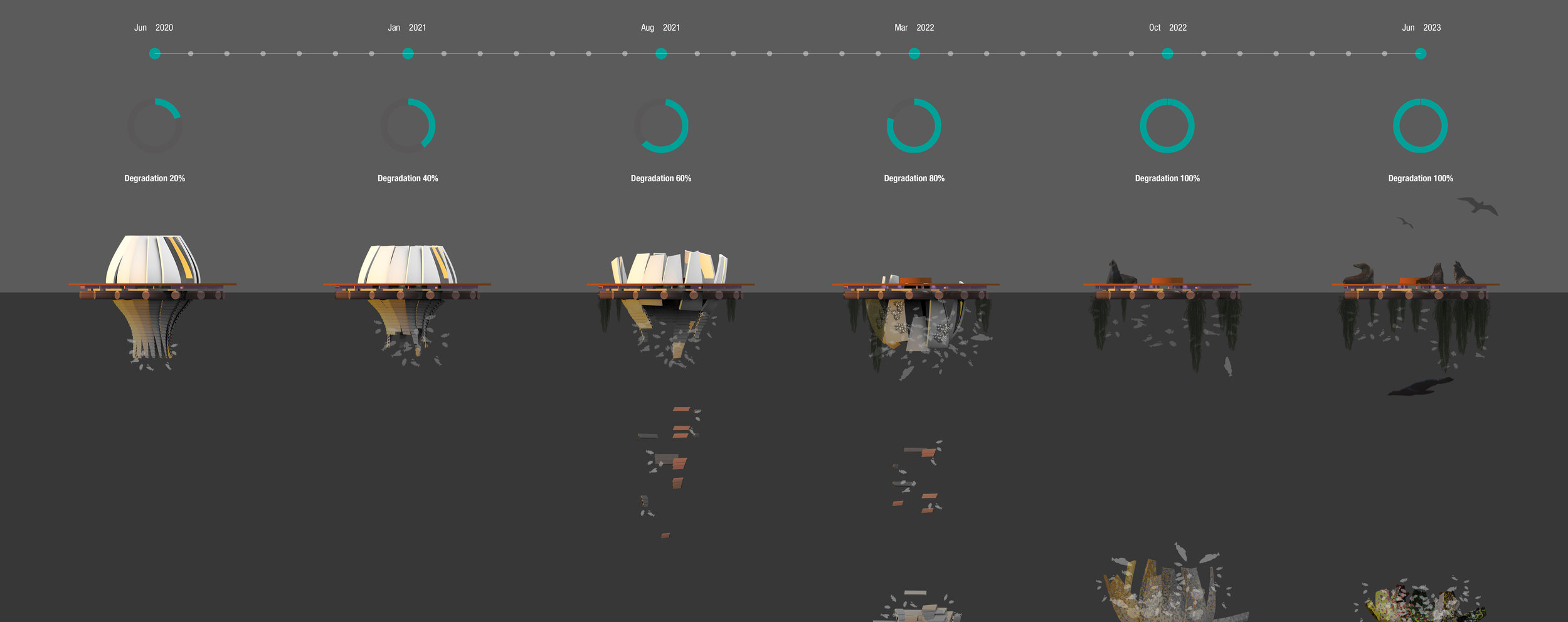
instructors
Margaret Ikeda
Margaret Ikeda is an Associate Professor of Architecture at California College of the Arts (CCA) in San Francisco, California. She is the Integrated Studio Coordinator and has developed the Buoyant Ecologies Studio curriculum which since 2015 has received five national AIA COTE Top Ten Student Awards for sustainability. Margaret is also a co-founder and co-director of the CCA Architectural Ecologies Lab that serves as a platform for collaborative research between designers, scientists, and manufacturers. The lab merges spatial practice with innovative techniques of material production and ecological research.The most recent project called the Float Lab, is currently moored in the Port of Oakland and designed to test a new type of resilient floating breakwater. In conjunction with the launch of the Float Lab, the Port awarded her with a Community Investment Grant to create an educational book called, A Guide to Field Identification, Marine Animals Coloring Book of the San Francisco Bay.
Evan Jones
Evan Jones is an Adjunct Professor of Architecture at California College of Arts (CCA) and practicing architect. As co-founder and principal of Assembly, an architecture firm located in Berkeley California, Evan has worked on many scales of projects from furniture and museum installations to landscape planning and multi-story housing projects. Within CCA, he has specialized in integrated design studios focusing on novel design strategies for coastal resilience under the Buoyant Ecologies studio curriculum. This speculative design work has led to the formation of the Architectural Ecologies Lab at CCA (along with fellow professors Margaret Ikeda and Adam Marcus) and the fabrication and deployment of the Float lab in 2019. The Float Lab works with biological fouling to attenuate waves and create ecological habitats. The project received a 2018 Architect Magazine R+D award, a national 2019 AIA Innovation Award, and recently awarded a 2020 ASCA Faculty Design Award.
Beth Ferguson
Beth Ferguson is a Bay Area designer and Assistant Professor of design at UC Davis. Beth is the director of Sol Design Lab, a design/build studio that specializes in solar charging stations for micromobility and ecological design. She has collaborated with public utilities, cities, and universities to provide elegant solar charging stations as a free public resource. She is currently a resident at the San Francisco Autodesk Technology Center in collaboration with the CCA Architectural Ecologies Lab. Recently, she participated in the Resilient by Design Bay Area Challenge, partnering with the award-winning team Public Sediment on their Unlocking Alameda Creek project.
Maia Yoshida
Maia Yoshida is a researcher in the Wendell Lim Lab at UCSF, where she engineers immune cells to perform novel and useful functions, such as seeking out and destroying cancers. In addition to her research, she creates and coordinates science outreach programs for Bay Area museums and schools. She is a recent graduate of the University of Pennsylvania and a past participant in the Biodesign Challenge. She was the first Artist-in-Residence at Epibone, a bone-reconstruction biotech startup company, and has worked with BioRealize, a biological product design company, to create algae-based carbon dioxide biosensors for use in textiles.
Shawn Douglas
Shawn Douglas is an Assistant Professor in the Department of Cellular and Molecular Pharmacology at the University of California San Francisco. He received his B.S. in Computer Science from Yale, his Ph.D. in Biophysics from Harvard, and completed his postdoctoral training at Wyss Institute for Biologically Inspired Engineering at Harvard University. His lab seeks to re-engineer the building blocks of life (DNA, RNA, and proteins) to create novel scientific tools and therapeutic devices. He previously received Popular Science Magazine’s “Brilliant 10” award, designed to honor researchers who “enhance our lives and stretch our imaginations”. In 2017, Dr. Douglas was named by Barack Obama as a recipient of the Presidential Early Career Award for Scientists and Engineers.
Wendell Lim
Wendell Lim is Professor and Chair of the Department of Cellular and Molecular Pharmacology at the University of California San Francisco, and an Investigator of the Howard Hughes Medical Institute. He was awarded the Byers Distinguished Professorship in January 2018. He received his A.B. in Chemistry, summa cum laude, from Harvard College, his Ph.D. in Biochemistry and Biophysics at the Massachusetts Institute of Technology and completed his postdoctoral training at Yale University. His research focuses on the design principles of molecular circuits that govern cell decision-making and responses. His lab has made contributions in understanding the molecular machinery of cell signaling and how molecular modules have been used in evolution to build novel new behaviors. Most recently he has been a pioneer in the field of synthetic biology, exploring how these design principles can be harnessed to engineer cells with customized therapeutic response programs
Dyche Mullins
Dyche Mullins studied electrical engineering and mathematics before becoming fascinated with cell biology during his doctoral work at the University of Kentucky. After postdoctoral work at Johns Hopkins University and The Salk Institute for Biological studies, Mullins joined the faculty at UCSF. Since 2011, Mullins has also been an Investigator of the Howard Hughes Medical Institute. Work in the Mullins Lab focuses on the assembly and regulation of cytoskeletal networks - collections of molecules that self-assemble into complex structures that enable cells to transport molecular cargoes, change their shape, and propel themselves from place to place. Understanding how cells construct these internal molecular 'skeletons' is key to understanding a wide variety of biological processes and human diseases.
